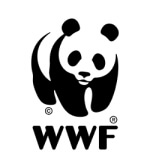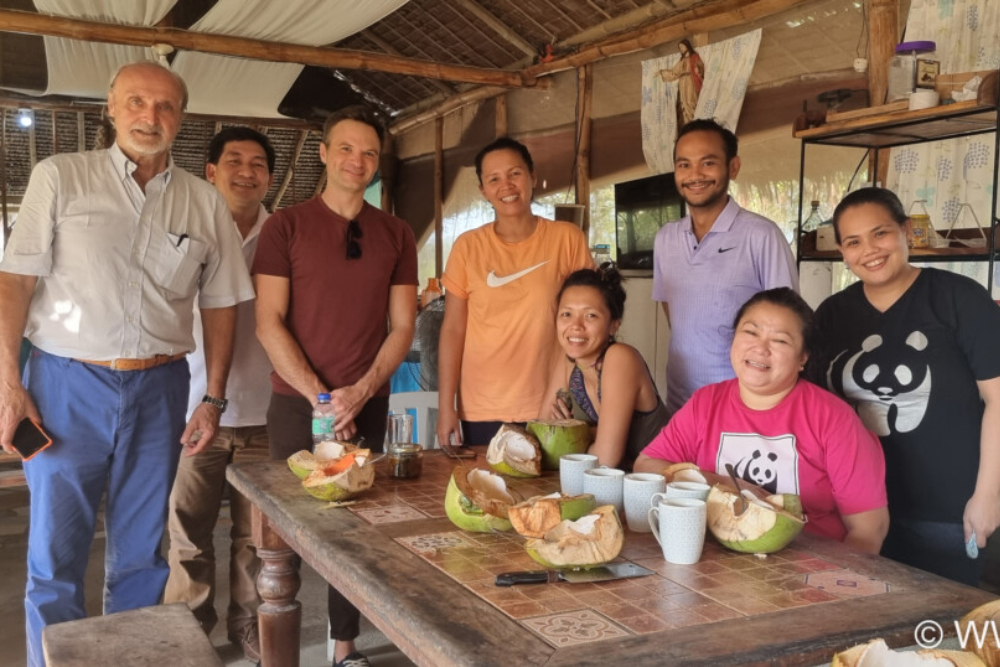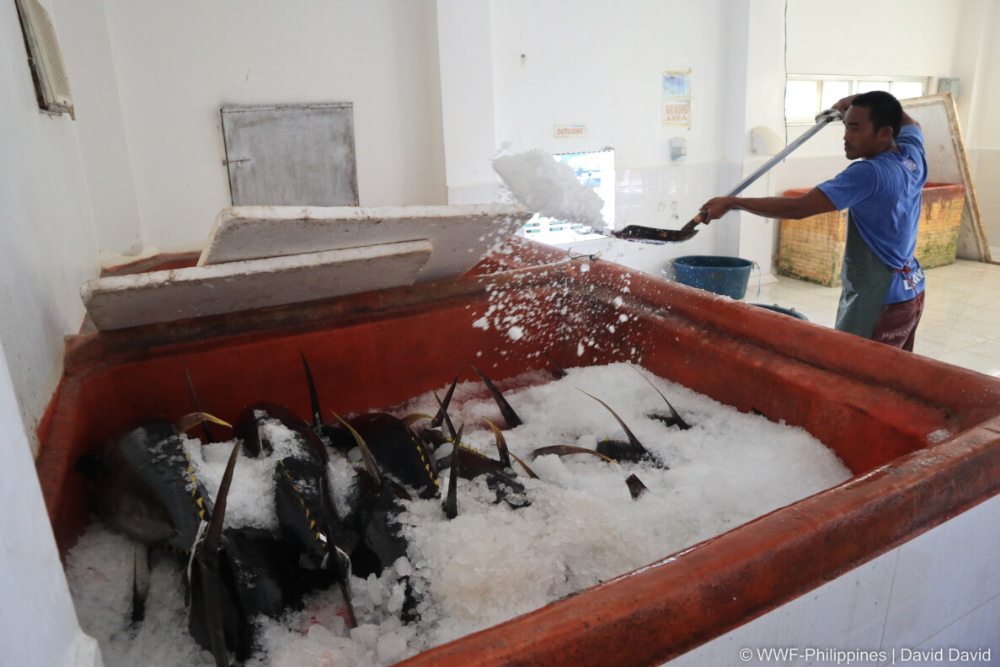Incredibly rich in marine life, the Philippines owes its abundance to its geographical location. This archipelagic country is part of the Coral Triangle – a marine area home to the highest concentration of coral and fish species in the world that supports the livelihood and food security of local coastal communities. However, these marine resources are under threat. Aside from being highly vulnerable to climate disaster, the archipelagic waters of Coral Triangle countries lack the resources and capacity to manage their fisheries. This endangers the numerous micro, small, and medium enterprises (MSMEs) that depend on the ocean, leading to a domino effect of increased poverty and lower contribution to the national economy.
Chronic poverty in coastal communities partly drives overfishing and unsustainable fishing practices that further threaten the health of their fisheries, which in turn makes it difficult for fishers to bring home a decent catch. This self-destructive cycle can be interrupted by helping fishers earn more through alternative sources of income, and facilities and resources that help lessen spoiled catch and increase fish quality. However, a major barrier to this solution is the lack of investments in our fishers. This is mainly due to the high risk of the sector driven by the fisher’s seasonal income, lack of established financial records, and lack of access to credit that proves they are bankable.
Such is the case in the tuna fishing communities of Occidental Mindoro. To remedy this, WWF-Philippines, through the European Union-funded Project Buhay: Tuna Habambuhay, Dagdag Hanapbuhay, is putting together a portfolio of bankable projects – existing businesses that have investment potential. This portfolio will be presented to external investors in the hopes of securing capital funding to expand and further develop the identified businesses.
Project Buhay has hired the services of SOFECOM, a management consulting firm that has worked widely in the area of fisheries, climate, conservation and development. They have extensive experience in working in fisheries and livelihoods across Southeast Asia. Their role is to put together the portfolio to be presented to potential investors, gauge investor feedback, and facilitate the investments.
Work began last March 2023 with visits to the communities and in-depth discussions with business owners. From this visit, several businesses of varying sizes related to fisheries and agriculture were identified, many of which need financing support. One of the promising ventures is an ice plant equipped with a solar power system and upgraded with energy efficient machinery. Ice is essential in the operations of small-scale tuna fishers, but there is a shortage in the province. The use of renewable energy and energy-efficient equipment would make it more sustainable, especially in the face of Occidental Mindoro’s energy problem. The unmet need for ice is a promising opportunity, and could easily be packaged as an attractive investment. The bankable portfolio will be available by the first half of 2024.
Taking it a step further, Project Buhay will also identify smaller businesses within the community that have growth potential but need extra support in business planning and access to working capital. The project will seek the services of a business planning consultant to provide small enterprises and community based associations the technical assistance in facilitating the development of their enterprises. This would help them establish the business’ financial capacity by putting in place a financial documentation system, support them in accessing small grants, and identify parts of the tuna value chain wherein they can enter or fulfill a gap.
In the short-term, the goal is to be able to give our small-scale tuna fishing communities access to preliminary financing for working capital, and to attract further investments by project end in 2025. In the long-run, these efforts aim to create more jobs and facilitate economic growth to help our tuna fishers break through the unsustainable fishing cycle and work towards an equitable and sustainable tuna fishery.



